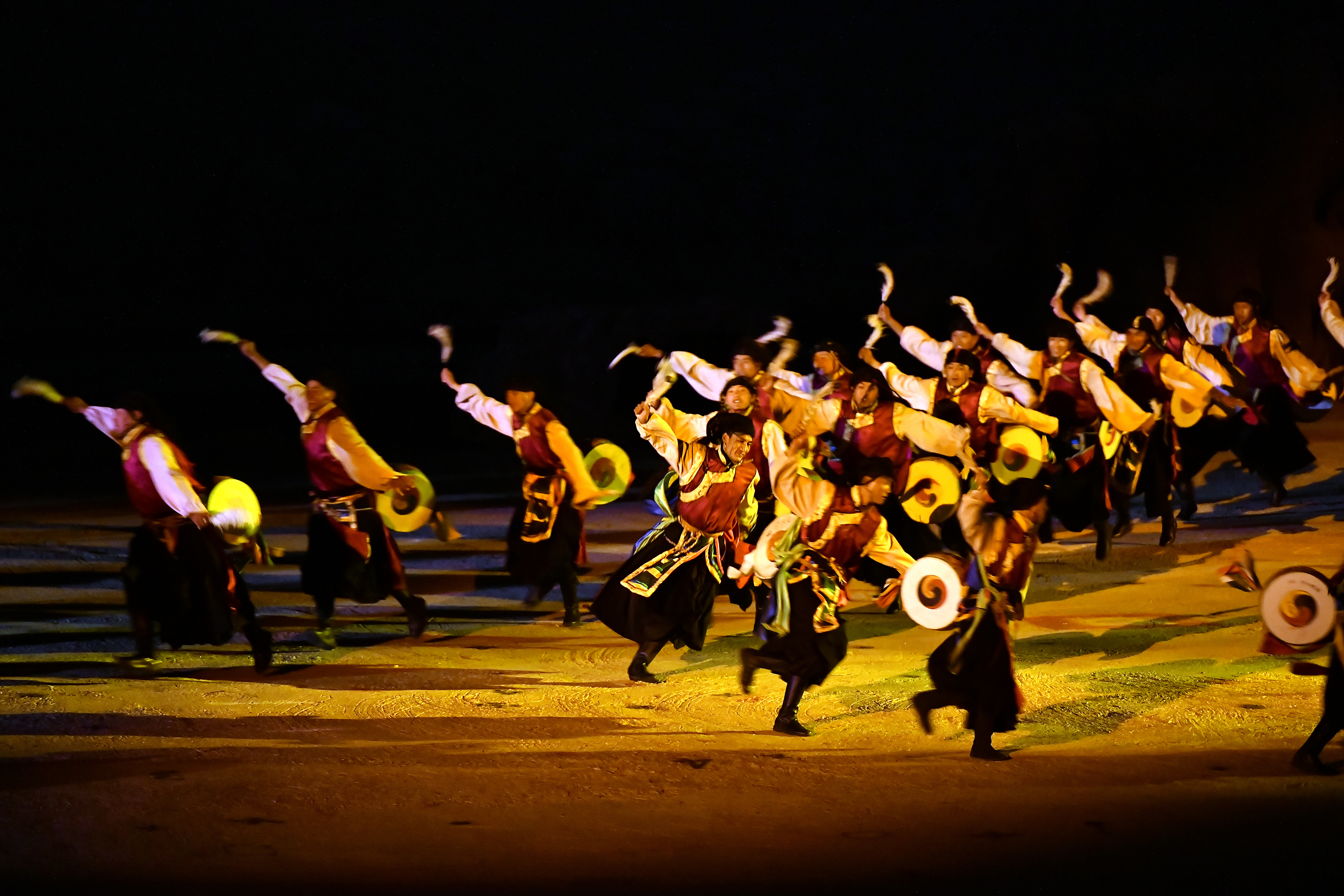
The seventh year performance of opera "Princess Wencheng" stages in Lhasa, southwest China's Tibet Autonomous Region on April 20, 2019. (Xinhua/Li Xin)
LHASA, April 23 (Xinhua) -- An opera based on the life of a Tang Dynasty (618-907) princess has become a surprise hit in southwest China's Tibet Autonomous Region.
The outdoor opera "Princess Wencheng" started in the capital city of Lhasa in 2013 and has been an important tourist attraction alongside spots such as the Potala Palace and Jokhang Temple.
The 90-minute opera tells the story about Princess Wencheng who came all the way from Chang'an (today's Xi'an city) to marry Tibetan King Songtsen Gampo over 1,300 years ago.
The historical story is also recorded in the murals of Potala Palace and Jokhang Temple that was world renowned for the statue of Buddha Sakyamuni brought by Princess Wencheng.

An actress playing the opera's eponymous heroine during the April 20 performance in Lhasa. (Xinhua/Li Xin)
Apart from the statue, the historical records note that Princess Wencheng also brought silk clothes, books, grain, vegetable seeds, farming tool manufacturing techniques and metallurgy techniques, which greatly promoted development in Tibet.
The opera began its seventh year performance on April 20, and will last until Oct. 31 when the region's tourist season normally ends.
More than 1,000 performances of the "Princess Wencheng" opera have been staged in Lhasa for more than 2.1 million people since its debut. Last year saw 187 performances of the opera and 500,000 tourists.
The show had brought around 770 million yuan (about 114.8 million U. S. dollars) of profit and provided jobs for over 4,000 local people.
Chija Cering, 58, has worked seven years for the theater. The herder plays a part in the show with his two yaks.
"I can earn 4,500 yuan per month, and it is much more profitable than farming or grazing," he said.

Actors performing during the April 20 performance of the opera in Lhasa. (Xinhua/Li Xin)
Over 800 people performed in the opera, among which local farmers and herders accounted for 95 percent. They do farming in the day and work as an actors at night with an income of 3,000 yuan to 4,000 yuan each month.
The five-scene opera contains more than 10 types of intangible cultural heritage and modern dance, which attracts more and more young Tibetans to join in.
Losang Danba, a 28-year-old actor in a local Tibetan opera group, applied for a part-time job in the theater. He played eight roles in the show and earned more than 4,000 yuan a month.
"I can not only display the typical Tibetan dance I've learned, but also earn an extra salary," he said.
"The settings of the palace of Tang dynasty and Potala Palace are very shocking and grand," said Lu Wenjia, a tourist from Shanghai, adding that from the show she saw Tibetan dance and clothes and also learned about Tibetan history.
The show will probably be rearranged into an indoor opera and be staged in other places in China or even other countries, said He Ping, president of Usunhome Cultural Tourism, a company which runs the show.
As a sister opera of "Princess Wencheng," "Princess Jincheng," an indoor opera that tells the story about another Han princess marrying a Tibetan king is in rehearsal and will open in June. Enditem



